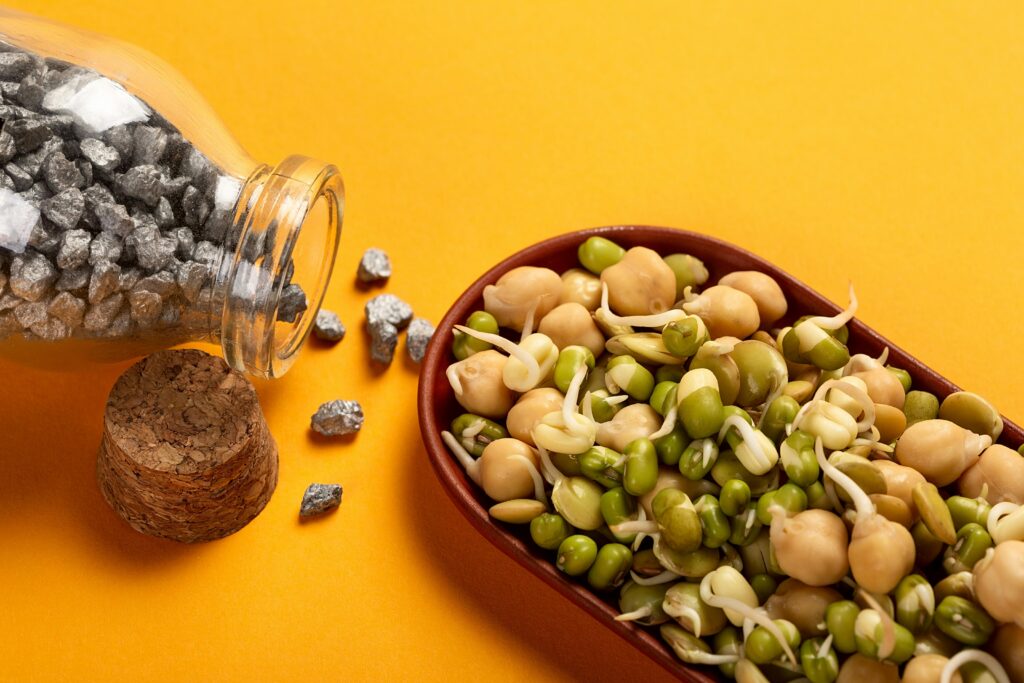Introduction
In today’s health-conscious world, the term “superfood” is often thrown around, promising extraordinary health benefits. However, amidst the buzz, there lies a myriad of misconceptions that cloud our understanding of these nutrient-packed foods. In this enlightening article, we’ll debunk some of the most prevalent myths surrounding superfoods, providing clarity and empowering you to make informed dietary choices.
Understanding Superfoods
Unveiling the True Essence of Superfoods
Superfoods, by definition, are nutrient-rich foods that offer exceptional health benefits due to their high concentration of vitamins, minerals, antioxidants, and other essential nutrients. These powerhouse foods have garnered attention for their potential to enhance overall well-being and combat various ailments.
Debunking the Myth of Exoticism
One common misconception about superfoods is the notion that they must be exotic or rare to qualify for the title. Contrary to this belief, many everyday foods found in local markets can also possess superfood status. Items such as spinach, blueberries, and oats are readily accessible and equally nutrient-dense.
The Fallacy of Instant Results
Another prevalent myth suggests that consuming superfoods will lead to immediate health improvements. While incorporating nutrient-rich foods into your diet is undoubtedly beneficial, expecting instant results is unrealistic. True health transformations require consistency and a holistic approach to nutrition and lifestyle.

Busting Misconceptions About Superfoods
Myth: Superfoods Are Cure-Alls
Superfoods are often hailed as miracle cures for various ailments, ranging from chronic diseases to aging. However, it’s essential to recognize that while they offer numerous health benefits, they cannot single-handedly prevent or cure diseases. A balanced diet, regular exercise, and overall lifestyle choices play equally crucial roles in maintaining health.
Myth: Superfoods Are Expensive
Contrary to popular belief, incorporating superfoods into your diet doesn’t have to break the bank. While some exotic varieties may come with a hefty price tag, many affordable options are equally nutritious. For example, beans, lentils, and sweet potatoes are budget-friendly alternatives packed with essential nutrients.
Myth: Superfoods Are a Replacement for Medication
While the nutrients found in superfoods can support overall health, they should never be viewed as substitutes for prescribed medications. It’s vital to consult healthcare professionals before making any significant changes to your treatment regimen. Superfoods can complement conventional medicine but should not serve as replacements.
Addressing Common Concerns
Are Superfoods Just a Marketing Gimmick?
While the term “superfood” has undoubtedly been exploited for marketing purposes, the underlying concept remains valid. Many foods classified as superfoods boast impressive nutritional profiles backed by scientific research. However, consumers should approach marketing claims with a critical eye and prioritize whole, minimally processed foods.
Can Superfoods Lead to Overconsumption?
While superfoods offer numerous health benefits, overconsumption can be detrimental. It’s crucial to maintain balance and variety in your diet, incorporating a diverse range of nutrient-rich foods. Additionally, focusing solely on superfoods may lead to neglecting other essential food groups, resulting in nutritional imbalances.
Are Superfoods Suitable for Everyone?
While superfoods can be beneficial for most individuals, it’s essential to consider individual dietary needs and potential allergens. Some superfoods, such as nuts and shellfish, may trigger allergic reactions in certain individuals. Additionally, individuals with specific health conditions should consult healthcare professionals before making significant dietary changes.
Conclusion
In conclusion, understanding the truth behind common misconceptions about superfoods is key to harnessing their full potential. By dispelling myths and embracing evidence-based nutrition, we can make informed choices that promote optimal health and well-being. Remember, there’s no magic bullet for health, but incorporating nutrient-rich superfoods into a balanced diet can undoubtedly enhance your overall wellness journey.
FAQs (Frequently Asked Questions)
Q: Can superfoods replace traditional medicine?
A: Superfoods should complement, not replace, traditional medicine. Consult healthcare professionals before making any significant changes to your treatment regimen.
Q: Are superfoods expensive?
A: While some exotic superfoods may be pricey, many affordable options, such as beans and sweet potatoes, offer comparable nutritional benefits.
Q: Can anyone consume superfoods?
A: While superfoods are generally beneficial, individuals with allergies or specific health conditions should exercise caution and seek advice from healthcare professionals.
Q: Do superfoods guarantee instant health improvements?
A: Consistency is key. While superfoods offer health benefits, expecting instant results is unrealistic. Sustainable health transformations require time and commitment.
Q: Are everyday foods considered superfoods?
A: Yes, many everyday foods like spinach and blueberries qualify as superfoods due to their exceptional nutritional content.
Q: Are superfoods just a marketing gimmick?
A: While the term “superfood” is sometimes exploited for marketing, many foods classified as such offer genuine health benefits supported by scientific research.